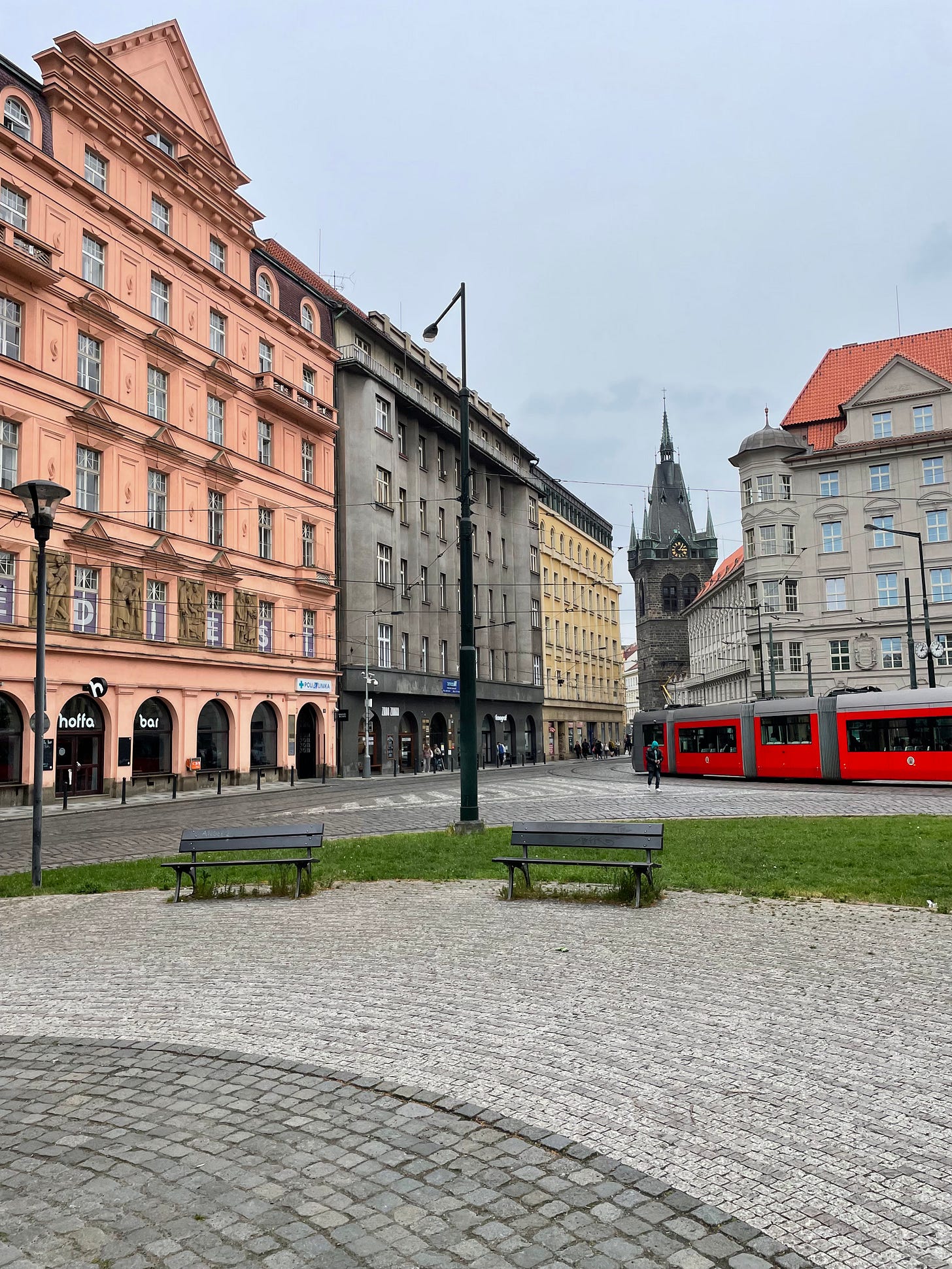An Australian man once traveled to Italy.
At a restaurant, he tried to order one type of pasta with another type of sauce. He wanted to customize his order. As a picky eater, I could relate.
The Italian waiter’s response?
“NOOOOOOOO! No.”
This reminded me of a stroll in Prague one afternoon.
In awe at the colors of the buildings, I came across a group of guys painting a vintage apartment building.
They were painting it a creamy orange color.
And in Lisbon, a building outlined in green square tiles had me in awe. So did the stunning cathedrals and hand-crafted buildings all over Europe.
All of these small details made me think that not everything is meant to scale. By scale, I’m talking in the context of business. Scaling means to grow over time. To make a business more efficient and generate more profits.
Not everything is about efficiency.
With the Italian chef: instead of expanding the menu to cater to more customers and make more money, he preserved Italian tradition and culture.
In Prague and Lisbon, there’s few buildings in the world with those designs. Preserving them takes work. It’s not easy.
From the business perspective, it’s much easier to paint everything the same color. Or even use a low-maintance building material.
But not everything is meant to scale.
Europe safeguards history, tradition, and culture over the possibility of growing businesses.
Tradition supersedes profit.
Of course stores and restaurants would make more money if they stayed open during the afternoon. But 3-6 pm is the time for the siesta and spending time with family at home.
An Italian restaurant could whip up a new pasta dish to make another sale.
But they don’t.
Why?
Culture and tradition.
In historically newer countries like America and Australia, you don’t see this too often.
Not everything has to be efficient. Making a living is important, but maximizing profit can get toxic.
As entrepreneur and musician Derek Sivers wrote:
“When people would ask, “What are you doing to grow your company?” I’d say, “Nothing! I’m trying to get it to stop growing! I don’t like this. It’s too big.” They thought that was the weirdest thing. Doesn’t every business want to be as big as possible? No. Make sure you know what makes you happy, and don’t forget it.”
- Derek Sivers, Anything You Want
This circles back to something I wrote about two weeks ago: redefining our definition of success.
Matthew McCounaghey wrote in his memoir, Greenlights:
“We all want to succeed. The question we need to ask ourselves is, What is success to us? More money? Okay. A healthy family? A happy marriage? Helping others? To be famous? Spiritually sound? To express ourselves? To create art? To leave the world a better place than we found it?
‘What is success to me?’ Continue to ask yourself that question. How are you prosperous? What is your relevance? Your answer may change over time and that’s fine, but do yourself this favor: Whatever your answer is, don’t choose anything that will jeopardize your soul.
Prioritize who you are, who you want to be, and don’t spend time with anything that antagonizes your character.”
For an Italian restaurant, success lies in the fact that they can serve customers and preserve Italian food and culture.
In Prague, success involves preserving pre-World War II architecture.
For Derek Sivers, his success was running a small company that helped other people pursue their dreams.
It’s easy to get hyper focused on metrics like money and growth. But at what point do we update our own definitions of success once we’ve achieved our goals?
Happy Sunday,
- BB
If you liked this, you’ll enjoy my daily short-form writing on Twitter. It’s a public journal where I share most of my ideas, stories, and notes.




